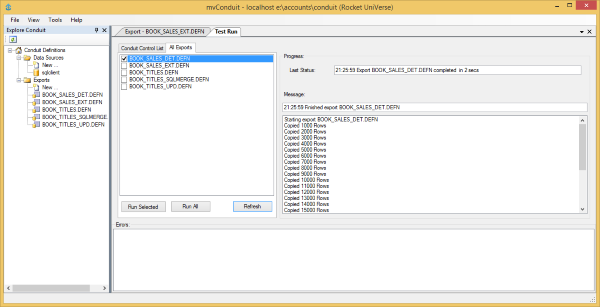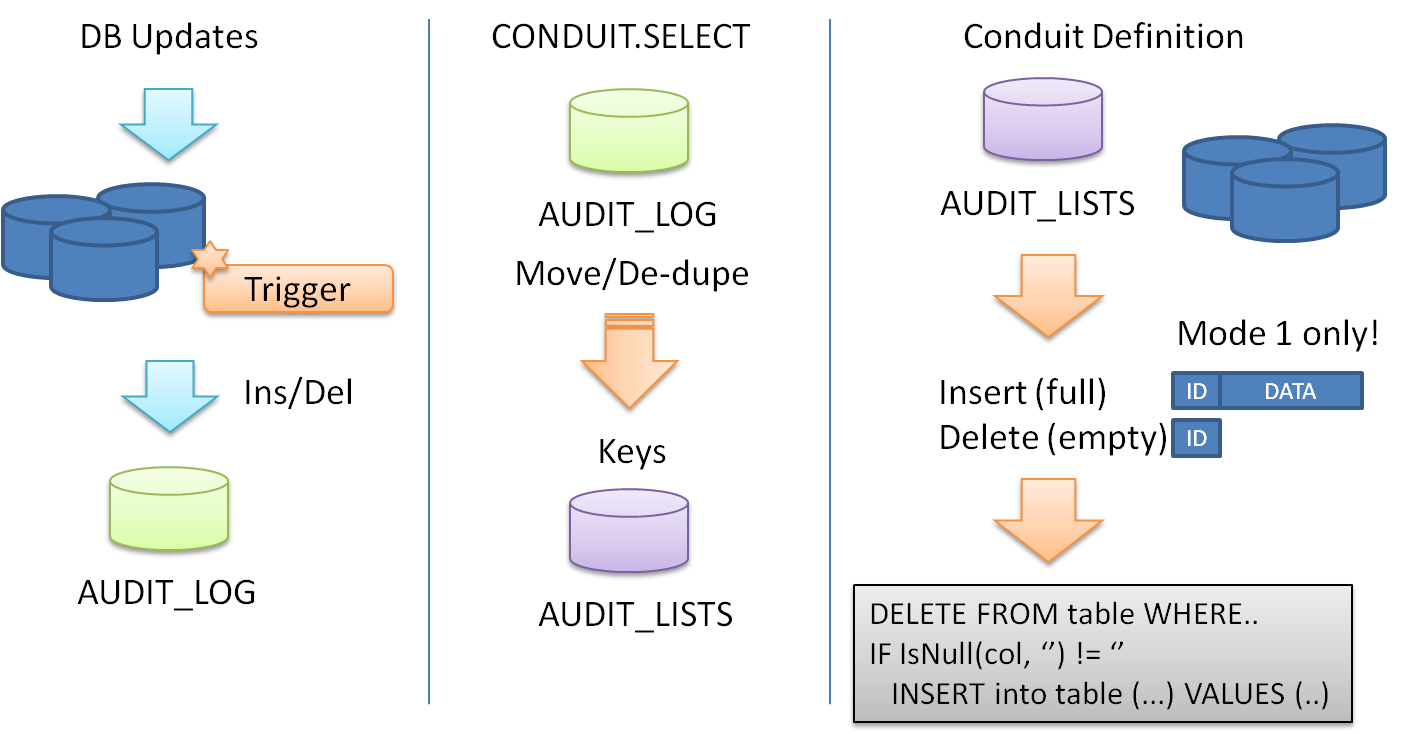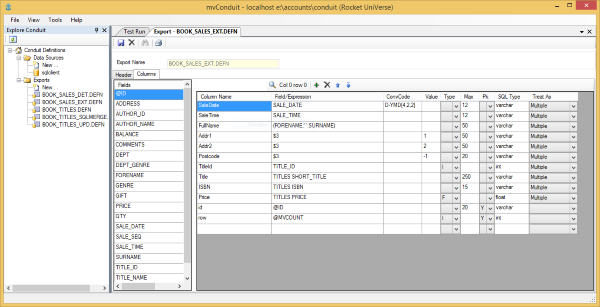Populate Remote Databases
If you need to populate remote databases for reporting, management information, data warehousing or third party
product support, mvConduit is an end user tool providing a quick, easy
and fast mechanism to do so.
mvConduit runs as a Windows service and acts as a pipeline for scheduled exports of data from your MultiValue
application to a SQL database, optimized for Microsoft SQL Server and MySQL.
Capturing Database Changes
mvConduit is designed to support continuous or periodic feeding of a remote database from your application,
and comes with a set of tools for capturing and sending changes to your data.
mvConduit can install database triggers or specially formed secondary indices that trap and log changes to
your critical data files and form a complete audit trace of activities that affect those files without any
changes to your application.
mvConduit can then use the audit logs to select changed records and to send details of deletions as well as
updates and insertions to the remote database.
Accessible Data Definition
mvConduit is designed to make it easy to identify and map data from your MultiValue database.
Data Source definitions include details on how the data should be selected and normalized,
data type handling and length constraints, and access to columns by dictionary name, field location,
optional value location, calculation expressions using the database IDescriptor syntax, and special
variables that hold row counters and other derived runtime information.
For related data accessed via foreign keys you can use calculated dictionaries, but for faster results
mvConduit accepts a join syntax that allows it to optimize processing by ensuring only single reads
for multiple columns.
Optimised Processing
Populating a remote SQL database can be a performance bottleneck, and so mvConduit is designed to optimize
the way that data is inserted or updated in the remote source.
For users of Microsoft SQL Server, mvConduit can use the faster native SQLClient features including SQL
Bulk Import and SQL Merge for fast insertions, and can both call and generate stored procedures for
handling upsert operations far more quickly and efficiently than by issuing regular SQL commands.
For other database types, mvConduit will parameterize queries to make the most of the caching features of
the target database.
Flexible Processing
mvConduit uses dictionary items and calculations or custom routines to allow you to map your data files onto remote tables or stored
procedures. Select from different routes for data generation to optimize them for different types and sizes of data.
Where dictionary driven export is not enough, you can call custom subroutines to generate the data or use
the push features of mvConduit to send data directly to a data source from within your programs, without the
limitations of BCI or the complexity of EDA.


